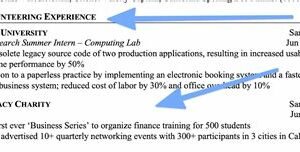Table of Contents
Looking for a rewarding career in the non-profit sector? Explore Volunteer Manager jobs and make a difference in your community. As a Volunteer Manager, you will oversee recruitment, training, and retention of volunteers, ensuring their skills are utilized effectively. Join a dynamic team and contribute to meaningful causes by coordinating volunteer programs and fostering relationships with individuals and organizations. Start your journey as a Volunteer Manager today and make a lasting impact!
Volunteer Manager Jobs offer a unique opportunity to make a meaningful impact in the community while developing valuable leadership skills. As the demand for volunteer programs continues to grow, organizations are seeking skilled professionals who can effectively recruit, train, and retain volunteers. With their expertise in coordinating and managing volunteer activities, Volunteer Managers are instrumental in bridging the gap between volunteers and the organization they serve. Whether it is organizing a disaster relief effort or overseeing a mentorship program, these dedicated individuals play a vital role in ensuring that volunteers feel engaged and valued. Furthermore, Volunteer Manager Jobs provide a dynamic and fast-paced work environment, where no two days are alike.
Introduction
Volunteering is a noble act that allows individuals to contribute their time, skills, and energy to make a positive impact on society. Behind every successful volunteer program, there is a dedicated professional known as a Volunteer Manager. In this article, we will explore the responsibilities, skills, and qualifications required for Volunteer Manager jobs.
What Does a Volunteer Manager Do?
A Volunteer Manager is responsible for overseeing all aspects of a volunteer program, from recruitment and training to retention and recognition. They work closely with volunteers, ensuring they are matched with suitable opportunities and providing ongoing support and guidance throughout their involvement. Volunteer Managers also collaborate with other staff members, community organizations, and stakeholders to develop and implement effective volunteer strategies.
Recruitment and Selection
The recruitment and selection process is a crucial aspect of volunteer management. Volunteer Managers develop compelling job descriptions, market volunteer opportunities, and actively engage with potential volunteers through various channels such as social media, community events, and online platforms. They conduct interviews, background checks, and reference checks to ensure the suitability and commitment of volunteers.
Training and Orientation
Once volunteers are selected, Volunteer Managers provide comprehensive training and orientation sessions to familiarize them with the organization’s mission, values, policies, and procedures. They may deliver training in person or through online platforms, ensuring that volunteers have the necessary skills, knowledge, and resources to carry out their roles effectively.
Supervision and Support
Volunteer Managers serve as the primary point of contact for volunteers, offering continuous supervision, guidance, and support. They establish open lines of communication, provide ongoing feedback, and address any concerns or challenges that volunteers may encounter. Regular check-ins and performance evaluations are conducted to ensure volunteers’ wellbeing and satisfaction.
Retention and Recognition
Volunteer retention is vital for the success of any program. Volunteer Managers develop strategies to foster a positive and inclusive volunteer culture, ensuring volunteers feel valued and appreciated. They organize recognition events, awards, and certificates to acknowledge volunteers’ contributions and milestones, fostering a sense of belonging and motivation.
Program Evaluation and Improvement
Continuous evaluation and improvement of the volunteer program are essential. Volunteer Managers collect feedback from volunteers, staff, and other stakeholders to identify strengths, weaknesses, and areas for growth. Based on this feedback, they implement changes, refine processes, and develop new initiatives to enhance the overall volunteer experience and program effectiveness.
Collaboration and Partnership
Volunteer Managers work collaboratively with various internal and external stakeholders. They build relationships with community organizations, businesses, and educational institutions to create partnerships that expand the volunteer pool and promote the organization’s mission. These collaborations also enable Volunteer Managers to tap into additional resources and expertise.
Qualifications and Skills
To succeed as a Volunteer Manager, certain qualifications and skills are highly desirable. Most organizations require a bachelor’s degree in a relevant field such as nonprofit management, social work, or human resources. Strong communication, interpersonal, and leadership skills are essential, as Volunteer Managers regularly interact with diverse groups of people. They must possess excellent organizational abilities, attention to detail, and the ability to multitask effectively.
Conclusion
Volunteer Managers play a pivotal role in creating and maintaining successful volunteer programs. Their dedication, passion, and expertise ensure that volunteers are engaged, supported, and empowered to make a difference in their communities. If you are interested in a career that combines your love for helping others with organizational and leadership skills, consider exploring the rewarding field of Volunteer Manager jobs.
Responsibilities of a Volunteer Manager
As a Volunteer Manager, your key responsibilities will include recruiting, training, and supervising volunteers, ensuring they are well-placed and supported within the organization. You will also be responsible for developing and implementing volunteer policies and procedures, as well as managing volunteer databases and records to maintain accurate and up-to-date information.
Qualifications and Skills Required
To excel in a Volunteer Manager role, you should possess strong interpersonal and communication skills, as you will be working with a diverse group of volunteers. Additionally, good organizational and problem-solving abilities are key, allowing you to effectively manage multiple volunteer projects simultaneously. A degree in human resources, social work, or a related field is often preferred, but relevant work experience in managing volunteers can compensate for formal education.
Recruitment and Training of Volunteers
Efficient recruitment and retention strategies are necessary for attracting and retaining suitable volunteers. Developing creative and targeted recruitment campaigns, conducting interviews, and collaborating with team leaders to identify specific volunteer needs are all part of an effective Volunteer Manager’s responsibilities. Once selected, providing comprehensive training programs and ongoing support ensure volunteers are equipped and motivated to fulfill their roles successfully.
Volunteer Management and Supervision
As a Volunteer Manager, you will be responsible for providing supervision and guidance to volunteers, ensuring their efforts align with the organization’s mission and values. Regular check-ins, performance evaluations, and addressing any issues or concerns that may arise are fundamental to maintaining a positive volunteer experience. By fostering a supportive environment, you can cultivate strong relationships with volunteers and maximize their contributions.
Collaboration with Internal and External Partners
Collaborating with various departments within the organization and external partners is crucial in a Volunteer Manager role. By understanding the needs of different teams, you can effectively match volunteers with appropriate projects. Additionally, building relationships with community organizations and other stakeholders allows for potential partnerships and expanded volunteer opportunities.
Program Development and Evaluation
Developing new volunteer programs and assessing their effectiveness are integral aspects of a Volunteer Manager’s role. By conducting program evaluations, gathering feedback from volunteers, and analyzing metrics, you can identify areas for improvement and tailor programs to ensure optimal volunteer engagement and impact.
Risk Management and Compliance
Ensuring compliance with legal and ethical standards is essential for volunteer management. As a Volunteer Manager, you will be responsible for implementing health and safety measures, managing risk assessments, and maintaining appropriate volunteer insurance coverage. Having a solid understanding of relevant legislation pertaining to volunteering is crucial to safeguard both volunteers and the organization.
Relationship Building and Recognition
Building positive relationships with volunteers is vital for their satisfaction and retention. By organizing regular appreciation events, recognizing volunteers’ contributions, and providing opportunities for feedback and engagement, you can foster a sense of belonging and encourage long-term commitment. Establishing strong relationships with volunteers also enhances the overall reputation and credibility of the organization within the community.
As a professional in the field of volunteer management, I understand the importance of effectively recruiting, training, and retaining volunteers for an organization. Volunteer manager jobs play a crucial role in connecting individuals with meaningful opportunities to give back to their communities. Here are some key points about volunteer manager jobs:
Recruitment: Volunteer managers are responsible for developing and implementing strategies to attract a diverse pool of volunteers. This involves conducting outreach efforts, attending community events, and leveraging online platforms to increase visibility and interest in volunteering.
Training and Onboarding: Once volunteers have been recruited, it is the volunteer manager’s responsibility to provide comprehensive training and orientation sessions. These sessions equip volunteers with the necessary knowledge and skills to fulfill their roles effectively within the organization.
Supervision and Support: Volunteer managers serve as the main point of contact for volunteers, providing ongoing guidance, support, and feedback. They ensure that volunteers feel valued and recognized for their contributions, creating a positive and engaging volunteer experience.
Retention: Retaining volunteers is crucial for the long-term success of any organization. Volunteer managers implement strategies to maintain strong relationships with volunteers by organizing appreciation events, recognizing their achievements, and addressing any concerns or issues that may arise.
Collaboration: Volunteer managers work closely with other staff members and departments within an organization to identify volunteer needs and develop appropriate volunteer roles. They collaborate with program managers, event coordinators, and communication teams to ensure that volunteer activities align with the organization’s overall mission and goals.
Evaluation and Reporting: Volunteer managers collect and analyze data on volunteer performance, impact, and satisfaction. They use this information to improve volunteer programs, identify areas for growth, and report on the value and impact of volunteers to organizational stakeholders.
Overall, volunteer manager jobs require a combination of strong interpersonal skills, organizational abilities, and a passion for making a difference in the community. These professionals play a vital role in building and maintaining a robust volunteer network, ultimately contributing to the success and impact of the organization they serve.
Thank you for taking the time to visit our blog and learn more about volunteer manager jobs. We hope that the information provided has been valuable and insightful in helping you understand the role and responsibilities of a volunteer manager. As you may have gathered from the article, this role requires a unique set of skills and qualities that are essential in effectively managing and coordinating volunteers.
Volunteer managers play a crucial role in the success of nonprofit organizations, as they are responsible for recruiting, training, and supporting volunteers. They are the driving force behind creating a positive and fulfilling experience for both volunteers and the organization they serve. With their expertise in volunteer management, they ensure that volunteers are placed in suitable roles that align with their skills and interests, resulting in a more productive and engaged workforce.
If you are considering a career in volunteer management, we encourage you to explore the various opportunities available in this field. Whether you are starting fresh or transitioning from another profession, volunteer management offers a fulfilling and rewarding career path. By working closely with volunteers and witnessing the impact they make, you will have the opportunity to contribute to meaningful causes and make a difference in your community.
In conclusion, volunteer manager jobs require a unique combination of leadership, communication, and organizational skills. If you possess a passion for volunteerism and enjoy working with people, this could be the perfect career path for you. We hope that the information provided in this article has inspired you to consider a career in volunteer management and has provided valuable insights into the role and responsibilities of a volunteer manager. Thank you once again for visiting our blog, and we wish you the best of luck in your future endeavors!
Video Volunteer Manager Jobs
1. What are the main responsibilities of a volunteer manager?
A volunteer manager is responsible for recruiting, training, and coordinating volunteers within an organization. They develop volunteer programs, assign tasks to volunteers, and ensure that they have the necessary resources and support to carry out their duties effectively. Volunteer managers also act as a liaison between volunteers and the organization, addressing any concerns or issues that may arise.
2. What qualifications are required to become a volunteer manager?
To become a volunteer manager, most organizations require candidates to have a bachelor’s degree in a relevant field such as nonprofit management, social work, or human resources. Additionally, experience in volunteer management or working with volunteers is highly valued. Strong communication and organizational skills are essential, as well as the ability to work well with diverse groups of individuals.
3. How can I gain experience in volunteer management?
There are several ways to gain experience in volunteer management. One option is to volunteer yourself and gradually take on more responsibilities within the organization, including managing other volunteers. Another option is to seek internships or part-time positions with nonprofits or community organizations that have volunteer programs. This will allow you to learn firsthand about volunteer management practices and develop the necessary skills.
4. What are the challenges of being a volunteer manager?
Being a volunteer manager can come with its challenges. Some common challenges include recruiting and retaining volunteers, effectively coordinating schedules, and ensuring that volunteers feel valued and appreciated. Additionally, volunteer managers may face difficulties in managing conflicts among volunteers or dealing with volunteers who do not fulfill their commitments. However, with proper training, support, and effective communication strategies, these challenges can be overcome.
5. How does volunteer management benefit organizations?
Volunteer management is crucial for organizations as it allows them to tap into a valuable resource of dedicated individuals who are willing to contribute their time and skills. By effectively managing volunteers, organizations can enhance their capacity to deliver services, expand programs, and reach a wider audience. Volunteer management also fosters a sense of community and engagement, strengthening the organization’s overall impact and reputation.






